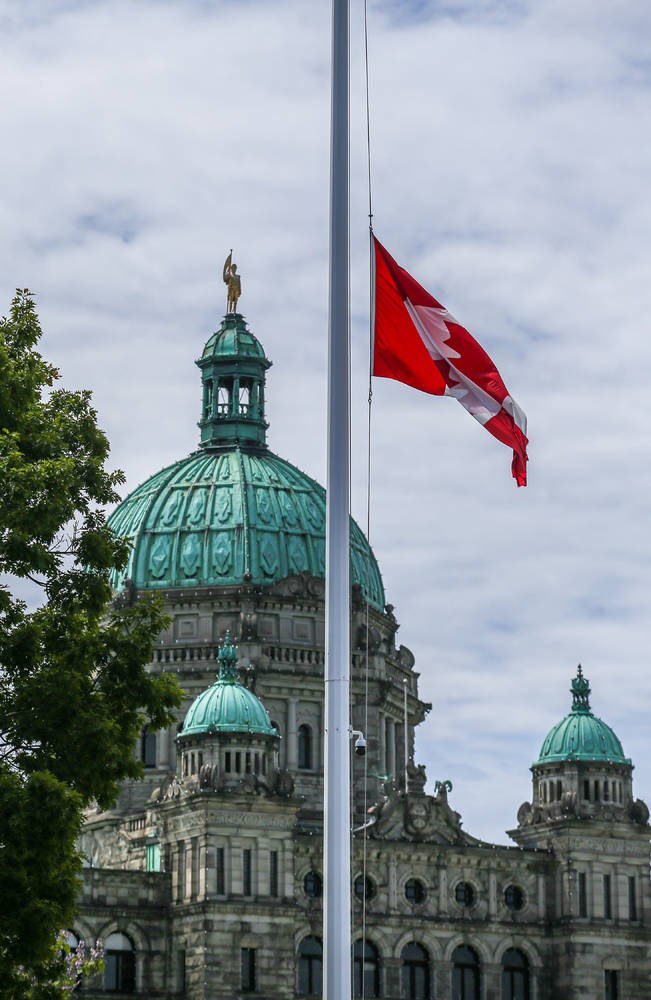A moment of silence was observed in B.C.’s legislature on Monday in honour of the 215 children discovered buried on the grounds of a Kamloops residential school.
B.C. Premier John Horgan rose with “heavy, heavy heart” to speak to the discovery of the unmarked graves, saying there are no words to describe the horror yet words “must be spoken.”
“Today this house has an opportunity to look back over the history, the tragic history, that is not just a moment in time but a live history of our situation here in Canada and here in British Columbia,” said Horgan. “Survivors of the residential school atrocities live it every day. Their children are also living it, and their grandchildren are living it.”
Children taken from their homes without any notice, denied their language and culture, oftentimes beaten and sexually abused. “Impossible to imagine in 2021,” said the premier. “Yet that is the history of the residential schools in our country.
The premier noted the 94 calls to action in the Truth and Reconciliation Commission — several of which focus directly on the abuse inflicted on children in residential schools — and said that many of the actions within provincial jurisdiction are in mandate letters given to ministers.
“This is the least we can do to try and do what we can to make amends for a period in time that lives with us to this very day,” said Horgan, who also noted the unanimous support in 2019 for the UN Declaration on the Rights of Indigenous Peoples. On June 21, the premier will go to Lower Post near the B.C.-Yukon border where a residential school is set to be demolished and replaced with a new administration building.
Kamloops-North Thompson MLA Peter Milobar said it’s incumbent on “all of us in this chamber” to listen and support the Tk’emlúps te Secwépemc First Nation in its efforts to ensure that cultural protocols are followed as they work to provide the children and their families the dignity of a proper final resting place.
Saanich North and the Islands MLA Adam Olsen said like many of his peers, “my grandparents, my great aunties and uncles are survivors of Kuper Island Residential School.” The school, located on what’s now called Penelakut Island, near Chemainus, operated from about 1889 to 1975.
Olsen said for Indigenous people, the story of the discovery is neither shocking nor unimaginable.
“Our elders, our families, have been sharing the grim details of their experiences in residential schools for decades,” he said. “That is the record of the Truth and Reconciliation Commission. You don’t have to imagine it. You just have to believe it and care enough to act with the urgency that you would if it was your child that didn’t return home from school.”
Olsen noted Indigenous People continue to be overrepresented in fatalities at the hands of police, the criminal justice system, homelessness, suicide, addictions and drug poisoning — “all statistics you don’t want to ever be overrepresented in.”



